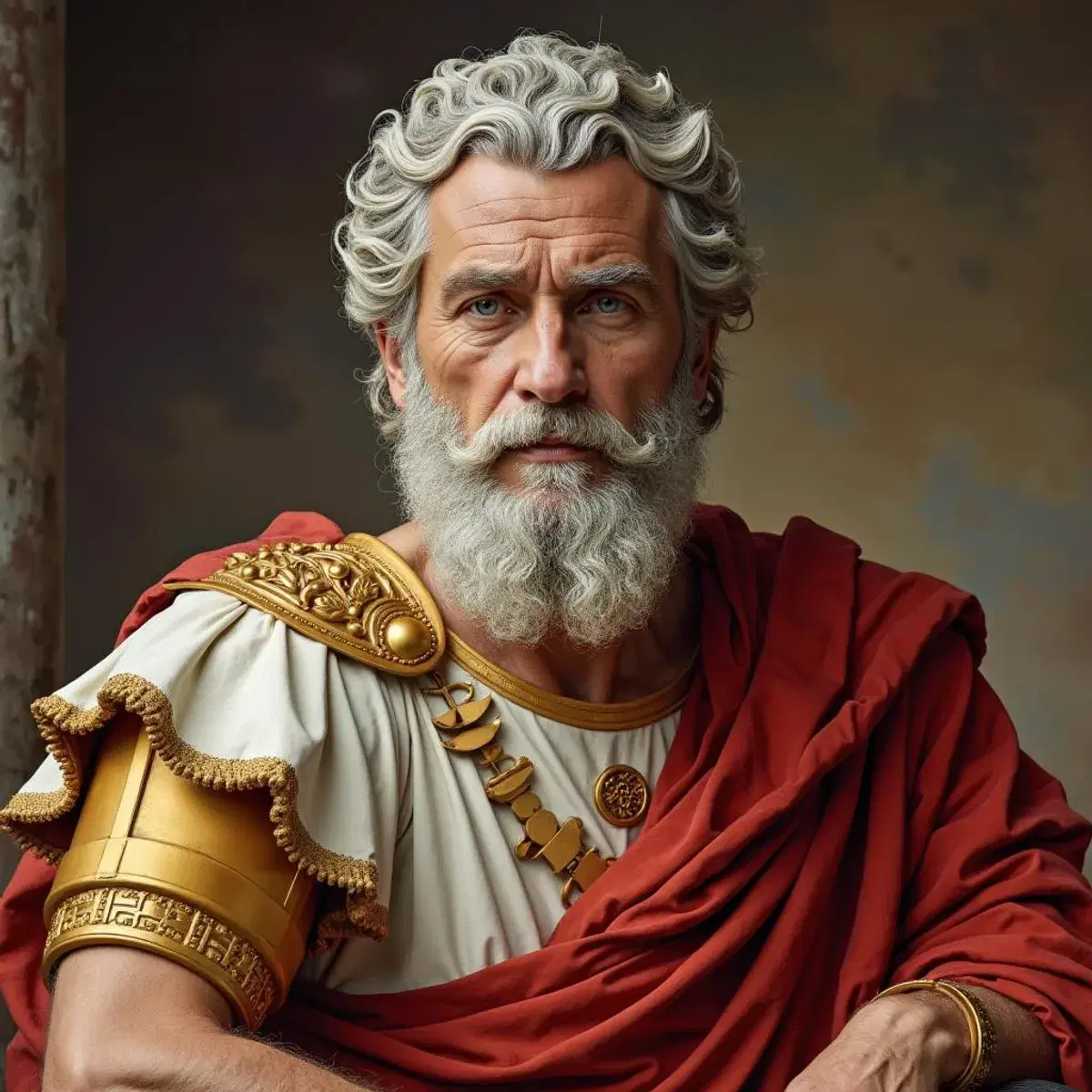Who Was Plato? Life, Works, and Influence of the Ancient Greek Philosopher
Plato, one of the greatest minds of ancient Greece, lived from 424/423 to 348/347 BCE. His name resonates throughout the corridors of Western philosophy, credited with foundational Dialogues that remain a cornerstone of philosophical inquiry. As the founder of the Academy in Athens, often regarded as the first university in the Western world, Plato's contributions have shaped countless disciplines, from ethics to metaphysics.

Plato
Early Life and Family
Plato was born into an aristocratic and politically influential family in Athens. His father, Ariston of the deme Colytus, and mother, Perictione, provided him with a privileged upbringing. Plato had two older brothers, Adeimantus and Glaucon, who feature prominently in his seminal work Republic, and a sister, Potone. According to the historian Diogenes Laertius, Plato’s birth name was Aristocles, with the nickname “Plato” attributed to his wrestling coach, inspired by his broad shoulders (in Greek, "platon" means broad). This claim, however, has been contested by scholars like Robin Waterfield, who argue for a birth date of 424/423 BCE, rejecting the traditional estimate of 428/427 BCE.
Waterfield bases his argument on several historical factors, including Plato's apparent absence from the later battles of the Peloponnesian War, which would suggest he was too young to be conscripted. Athens’ dire need for manpower during the war further supports the idea that Plato was under twenty years old at the time. This analysis aligns with Plato’s own account in his Letter 7, where he mentions aspirations to engage in public life upon coming of age.
From Politics to Philosophy
Plato’s upbringing seemed to pave the way for a political career, yet his interests extended to the arts. In his youth, he wrote plays and possibly poetry. His encounter with Socrates, however, marked a turning point. Fascinated by Socrates’ teachings, Plato abandoned his literary ambitions, burned his earlier works, and dedicated himself entirely to philosophy. This profound influence endured even through Socrates’ trial and execution in 399 BCE.
Socrates’ death deeply impacted Plato, prompting him to leave Athens and embark on travels to Egypt, Italy, and possibly other regions. These experiences enriched his perspectives and laid the groundwork for his Dialogues, which would immortalize his mentor and form the bedrock of Western philosophical thought.
Dialogues and Their Central Themes
Plato’s Dialogues offer a profound journey into the heart of philosophical thought. In works such as Euthyphro, Apology, Crito, and Phaedo, Plato captures the final days of Socrates, highlighting his unyielding dedication to truth and virtue. Often grouped under the title The Last Days of Socrates, these writings depict Socrates as a tireless pursuer of wisdom, questioning societal conventions and championing the philosopher’s right to challenge authority.
In the Apology, Socrates delivers a passionate defense against accusations of corrupting the youth and impiety. His words, as captured by Plato, emphasize the philosopher’s duty to prioritize the soul’s improvement over material wealth or societal approval. This speech has inspired generations, symbolizing the courage to stand by one’s convictions even in the face of death.
The Crito delves into Socrates’ reflections on the law and justice, exploring the tension between personal ethics and societal obligations. Despite an opportunity to escape his death sentence, Socrates chooses to uphold the principles he has lived by, arguing that evading the law would undermine his life’s work. The final act, Phaedo, presents Socrates’ arguments for the soul’s immortality, leaving readers to grapple with profound metaphysical questions.
Plato’s Theory of Forms
Central to Plato’s philosophy is the Theory of Forms, which posits the existence of a higher realm of absolute truths. According to this theory, the physical world is merely a shadow of the ultimate reality, where concepts like Beauty, Goodness, and Justice exist in their purest forms. This idea challenges the relativistic claims of sophists like Protagoras, who argued that reality is subjective and dependent on individual perception.
Plato’s Republic further explores these ideas, notably through the Allegory of the Cave. This metaphor illustrates humanity’s struggle to perceive true reality, suggesting that most people live in ignorance, mistaking shadows for the truth. The philosopher, represented by the individual who escapes the cave, has the responsibility to guide others toward enlightenment.
Criticism and Legacy
Despite his towering intellect, Plato faced criticism during his lifetime and beyond. The Cynic philosopher Diogenes of Sinope famously mocked Plato’s definition of a human as a featherless biped by presenting a plucked chicken and declaring, “Behold, Plato’s human!” While Plato’s philosophical rigor earned him widespread respect, his perceived elitism and abstract ideas were not universally embraced.
Nevertheless, Plato’s influence is undeniable. His Academy, founded around 387 BCE, became a beacon of higher learning for centuries, attracting scholars and thinkers from across the ancient world. Even after its closure by Emperor Justinian in 529 CE, the Academy’s legacy endured, shaping the intellectual traditions of medieval and Renaissance Europe.
Plato’s impact extended to his most famous student, Aristotle, who would carry forward his mentor’s commitment to philosophical inquiry while diverging on key points. Aristotle’s teachings, in turn, influenced Alexander the Great and facilitated the spread of Greek philosophy across the known world.
Philosopher for All Time

Plato ,Philosopher for All Time
Plato’s contributions to philosophy, science, politics, and art remain as relevant today as they were over two millennia ago. His exploration of universal truths and the human condition continues to inspire scholars, artists, and thinkers. As Alfred North Whitehead aptly remarked, “The safest general characterization of the European philosophical tradition is that it consists of a series of footnotes to Plato.”
Through his Dialogues and the enduring vision of the Academy, Plato invites us to confront fundamental questions about existence, morality, and the pursuit of knowledge. His life and work exemplify the philosopher’s eternal quest: to seek wisdom, challenge assumptions, and strive for a deeper understanding of the world and our place within it.





